142 CD / Felix Mendelssohn-Bartholdy: Sämtliche Lieder für gemischten Chor a cappella
Description
Presumably spring was Felix Mendelssohn’s favourite season. In eight of the total of thirty a cappella choral songs, spring is mentioned in the title; and it is possible that the forest was the place he most liked to be, because not only are very many of his songs about forest: he also visualised his music being performed in woodland. In a letter to his mother he described such an experience; and in his own illustration (reproduced in the detailed CD booklet) he even painted the scene. This first complete collection is rounded off by two first recordings. Following their recordings of Bach (TACET 108), Schütz (TACET 99) and Pepping (TACET 123), Matthias Jung and the Saxon Vocal Ensemble once again demonstrate how well they can perform German lyrics.
6 reviews for 142 CD / Felix Mendelssohn-Bartholdy: Sämtliche Lieder für gemischten Chor a cappella
You must be logged in to post a review.

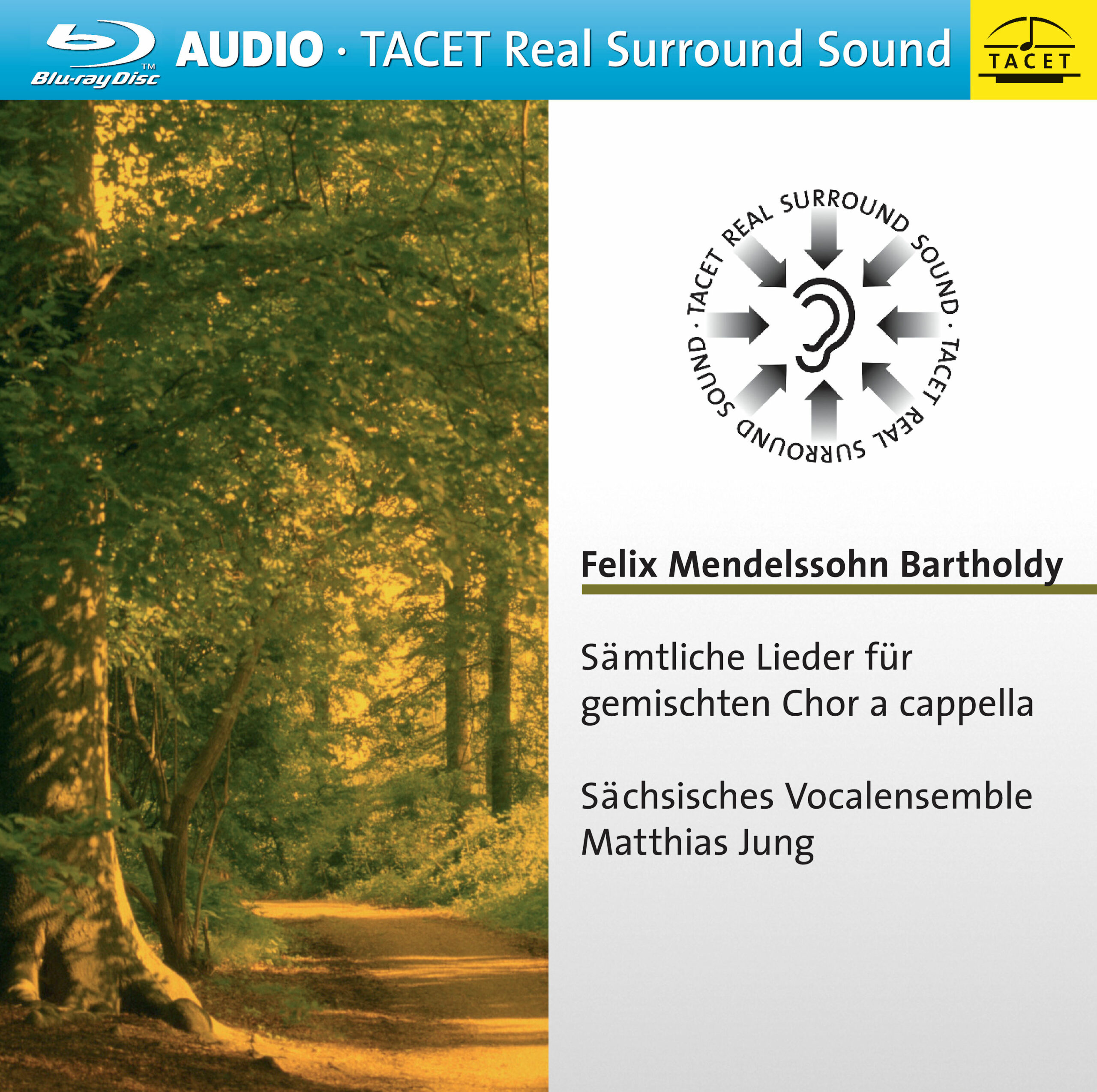

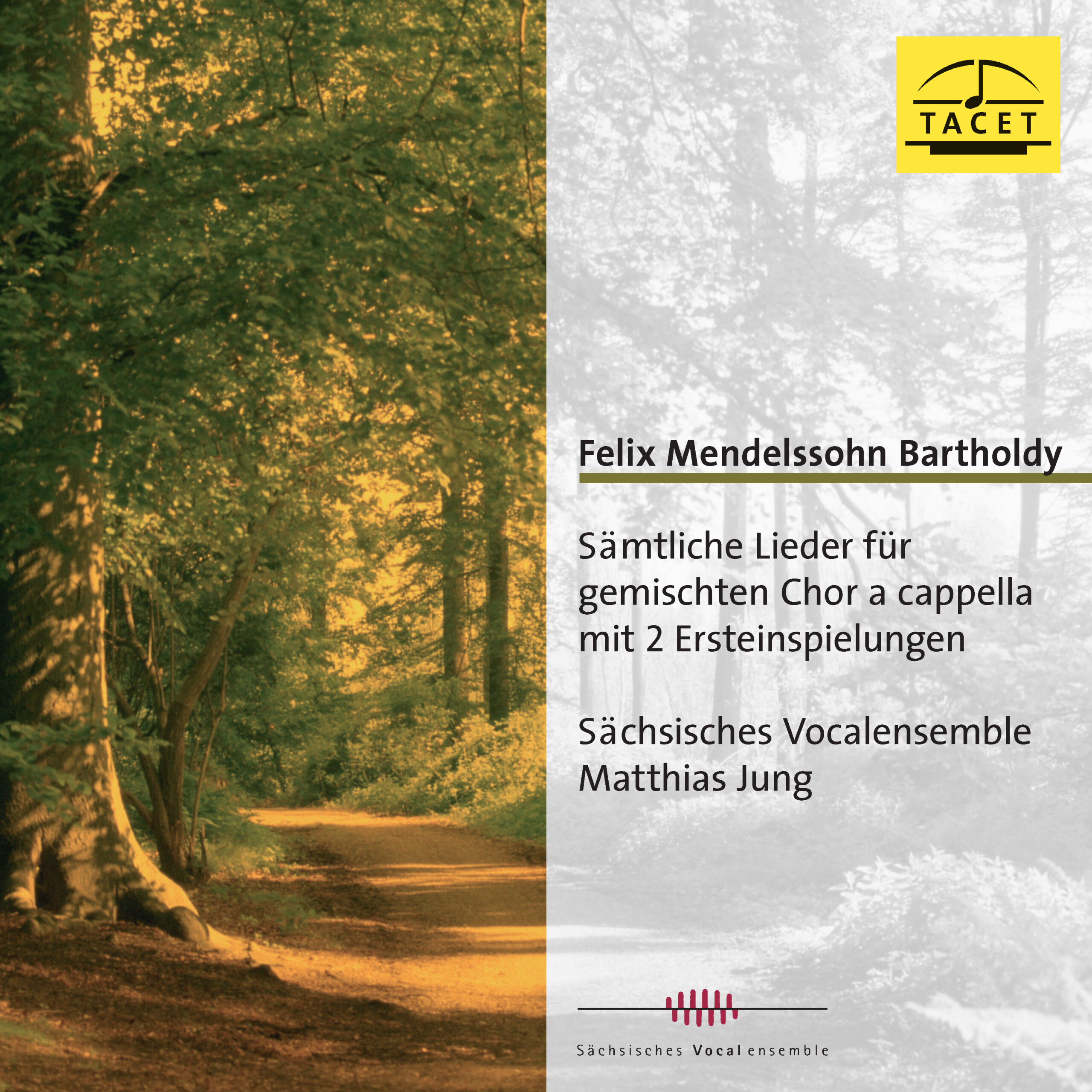
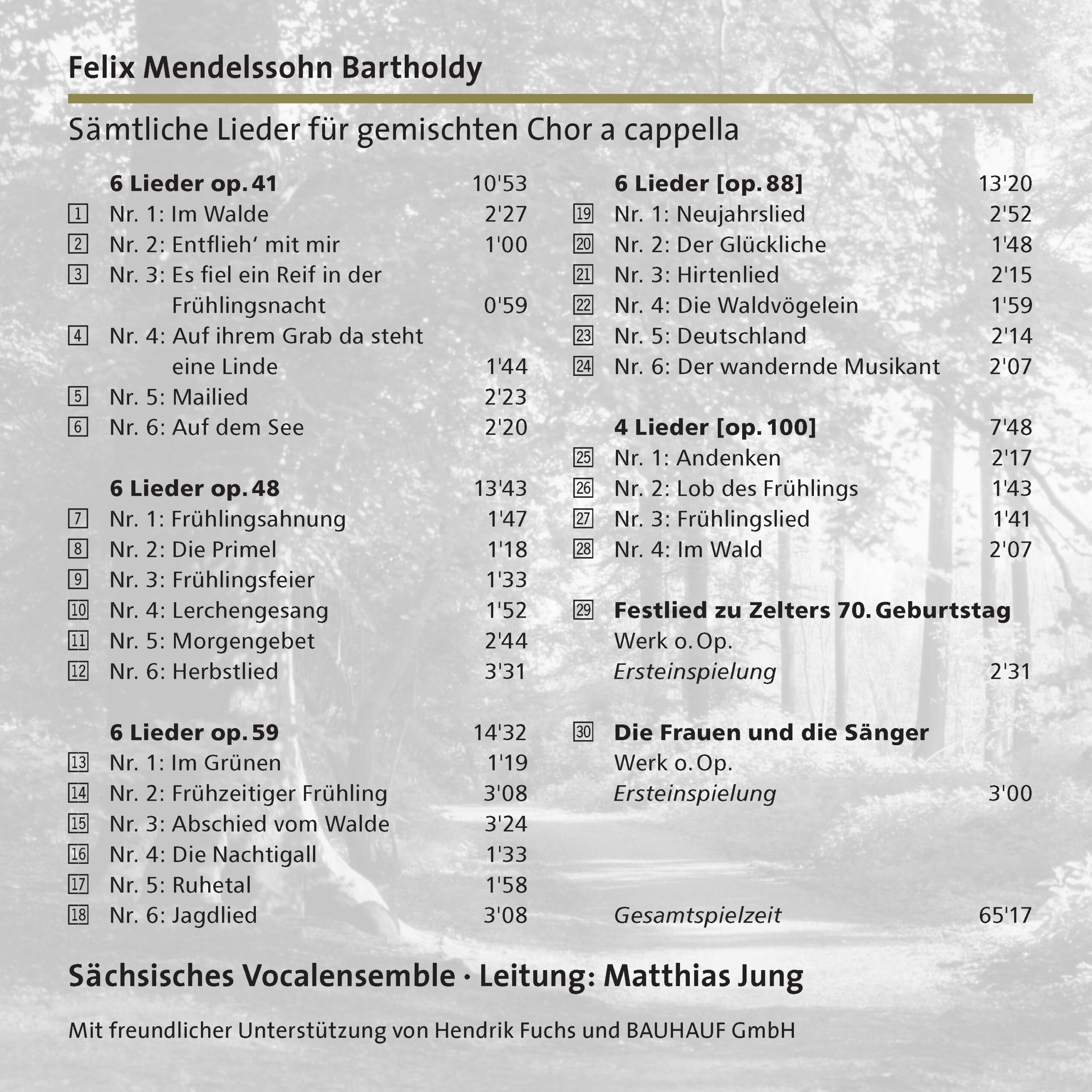



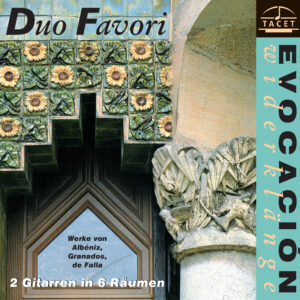
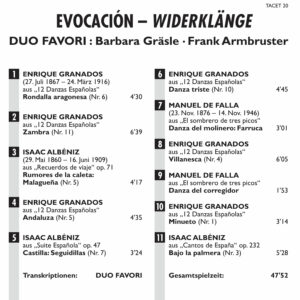
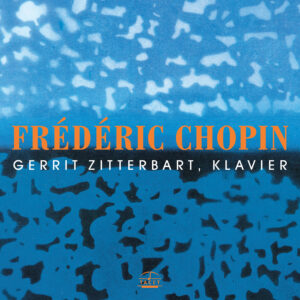
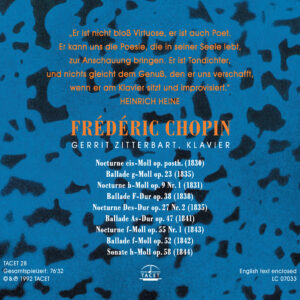

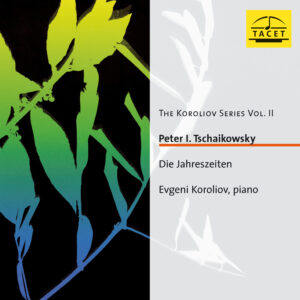
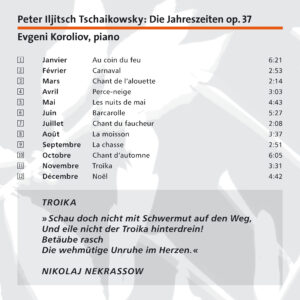
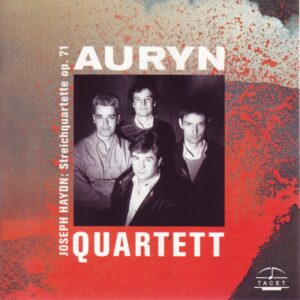
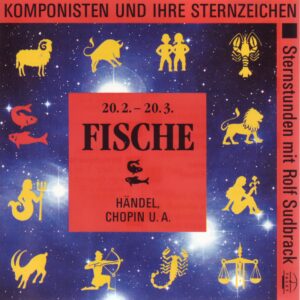
Fanfare-Magazin –
Mendelssohn actually intended these unassuming part-songs for outdoor performance; as recounted in Birgit Schreier’s commendable annotations, the composer reported in a letter to his mother that “when we had rehearsed in a room a lot had gone wrong . . . but when [the singers] assembled that evening under the trees and started on my first song . . . it was just so magical that the tears nearly started in my eyes.” The present recording was, thankfully, made indoors—adherence to authentic performance practice does have its limits. The result, in any case, is splendid.
I hear a lot of first-rate choral singing while wearing my Fanfare reviewing hat; but I can’t recall hearing any that surpasses the work of Saxon Vocal Ensemble as presented here. Blend, balance, diction, sensitive dynamic shadings—all are as near perfect as one could ask. If any technical virtue deserves singling out, it’s the bang-on intonation of the sopranos in the upper register. But perhaps more important, there’s a certain tenderness about these performances; the pieces aren’t treated as though they were excerpts from Elijah, but gently respected for the delicate miniatures they are.
Engineering and annotation are first-rate as well. As best I can tell, this release has no direct competition, and it doesn’t need any.
James Carson
Neue Chorzeit –
(...) The choir succeeds admirably in conveying the character of each individual song while maintaining a certain sense of unity. In this, the compositions prove to be a rewarding challenge. The catchy melodies of seemingly simple songs such as Abschied vom Walde or Die Nachtigall (Op. 59) are repeatedly enriched with contrapuntal artfulness, elevating these “folk-like” songs to true art songs. The singers’ joy is particularly evident in the lively pieces, such as Lerchengesang Op. 48. Here, the choir benefits from its frequent engagement with virtuosic Baroque music, whose vitality and lightness can be successfully transferred to this Romantic repertoire. Matthias Jung demands very brisk tempi, which effectively connects the individual stanzas and results in a coherent overall impression. The recording is complemented by an informative and clearly designed booklet, which also includes a drawing by Mendelssohn, who was talented as a painter as well.
Ulrich Barthel
Klassik heute –
klassik-heute: zehn Höchstnote für künstlerische Qualität, Klangqualität und Gesamteindruck
“O Täler weit, o Höhen”—what Eichendorff once put to paper in his allusive novel Ahnung und Gegenwart long remained, in Mendelssohn’s musical texture, overshadowed by tremolo-laden male ensembles and radio programs saturated with popular requests, and was largely irrelevant for careful choral singing. The Saxon Vocal Ensemble, whose previous CD productions raise particularly high expectations, does not disappoint even in this somewhat neglected segment of the repertoire. Their approach to these seemingly simple, folk-like melodies succeeds in a way that suggests a freshness as if encountered for the first time, providing a refreshing insight into the composer’s melodic talent and his evocative tonal painting. The 30 secular choral songs recorded here by Matthias Jung and his ensemble are imbued with lively impetus; the youthful, clear voices perfectly adapt to the composer’s onomatopoetic playfulness, resulting in an engaging listening experience without fatigue.
Norbert Rüdell
Hessischer Rundfunk, Klassik-Zeit –
“Ascension Day” is also known as “Father’s Day”—and on a decent day, that usually calls for an outing into the countryside. After all, this day falls in May, not in the capricious month of April. May is praised in countless folk songs as “absolutely spring-proof”: gentle breezes, fresh green, budding flowers… but let the Saxon Vocal Ensemble celebrate spring itself: they are the ones who recorded the CD we are pleased to recommend to you here—just as warmly as we would recommend the arrival of spring! (…)
The choir is the Saxon Vocal Ensemble, conducted by Matthias Jung. The ensemble consists of 22 singers who have fully embraced the essence of Mendelssohn’s songs: they perform them simply and clearly, handle the text with great care—which is excellently intelligible—and deliver the accents required in the scores just enough to be effective without sounding overly inflated or melodramatic. In the booklet, Johann Friedrich Reichardt is quoted from his Musikalischer Almanach of 1796: “The song should be the simple musical expression of a particular feeling.” That is precisely the tone the Saxon Vocal Ensemble achieves. (…)
The CD also includes two world premieres: a setting of Schiller’s poem Die Frauen und die Sänger and a Festive Song for Zelter’s 70th Birthday. Friedrich Zelter was a pioneer of choral life at the turn of the 18th to the 19th century. Mendelssohn was his student—so such a tribute comes as no surprise. The text, by the way, is by Johann Wolfgang von Goethe. (…)
Gisela Walther
Dresdner Neueste Nachrichten –
Songs by Felix Mendelssohn Bartholdy about spring, love, and longing for the forest—this is much more than just “O Täler weit, o Höhen.” The Saxon Vocal Ensemble under Matthias Jung has impressively demonstrated this with their newly released CD and on Saturday at the concert in the Dreikönigskirche. In the ten years since the choir’s founding, Jung has succeeded in shaping a top-tier ensemble. The voices blend seamlessly, as if handpicked. The singing is transparent, with a mastery of expressive shaping. The wonderful, robust piano technique and the suppleness of the dynamic lines proved especially essential in this program. Mendelssohn has rarely been heard so lean and precise. The shared intention and skill of choir and conductor are simply optimal, down to the smallest details.
The Saxon Vocal Ensemble devoted themselves almost devotionaly to the Eichendorff songs, which spoke of longing for the forest. Lively accents revolving around love and bitterness were highlighted in the Heine songs (with remarkably precise nuances in Es fiel ein Reif in der Frühlingsnacht), while cheerful exuberance characterized Goethe’s Auf dem See. Two true rarities—previously known only in facsimile editions and recorded here for the first time—adorned the program: the magnificent Lobgesang for Zelter’s 70th birthday, Lasset heut am edlen Ort, for four lead singers (what vocal harmony!) and choir, as well as Schiller’s whimsical reflection on Frauen und Sänger. Careful characterization and rich atmospheric depth marked Uhland’s Hirtenlied, while Jagdlied conveyed an unspoiled freshness. The concert was personally and insightfully enriched by speaker Axel Thielmann.
Finally, Abschied vom Walde. How many transgressions this song has suffered over the years! But when it is sung as simply and unpretentiously as here, the listener experiences pure joy. In the encore section, it was especially moving to hear Ruhetal, sung with utmost restraint and vocal sensitivity—a vision of a golden evening mood after Uhland. No, pathos is truly not the style of the Saxon Vocal Ensemble.
M.Hanas
Dresdner Neueste Nachrichten –
“… what a sweetness and charm pervaded the entire sound”
"How sweetly the singing sounded, how the soprano voices trilled so brightly into the air, and what a warmth and charm pervaded the entire sound, all so quiet and intimate, yet so bright—I had not imagined it. It was a choir of about twenty fine voices…" This enthusiastic remark is attributed to Felix Mendelssohn Bartholdy, when he heard some of his songs for mixed choir—with the performance instruction “to be sung outdoors”—performed in precisely that open-air setting, deep in the forest. Even though our language no longer possesses the inspired tone of an Eichendorff or Mendelssohn Bartholdy himself, it can still be assumed that the composer’s judgment would be similarly favorable today, had he heard the newly released CD recording of his songs.
This comes from the voices of the members of the Saxon Vocal Ensemble, whose founder and conductor Matthias Jung once again demonstrates a style of music-making that remains audibly faithful to himself and his principles. This means that here, too, the music is approached and sung with respect for the original score and the period in which the works were created. The singing is lean, beautiful in tone, and flexible—quite refreshing.
Thirty secular songs for mixed choir a cappella, composed between 1834 and 1847, are collected on this CD. The texts are by, among others, Heinrich Heine, Johann Wolfgang von Goethe, Nikolaus Lenau, Johann Ludwig Uhland, and Josef Karl Benedikt von Eichendorff. Two of the pieces are world premieres: Die Frauen und die Sänger, set to a text by Friedrich Schiller, and Lasset heut am edlen Ort, written for Zelter’s 70th birthday to words by Goethe. The songs were only published in facsimile editions in the 20th century and have remained relatively unknown until now. During the preparation of the CD project, Matthias Jung also discovered that one title was missing from the Leipzig Peters editions produced during the GDR era: apparently, the GDR’s chief ideologists did not approve of the Eichendorff text set to music by Mendelssohn, which concerned the German emperor. (…)
Kerstin Leiße